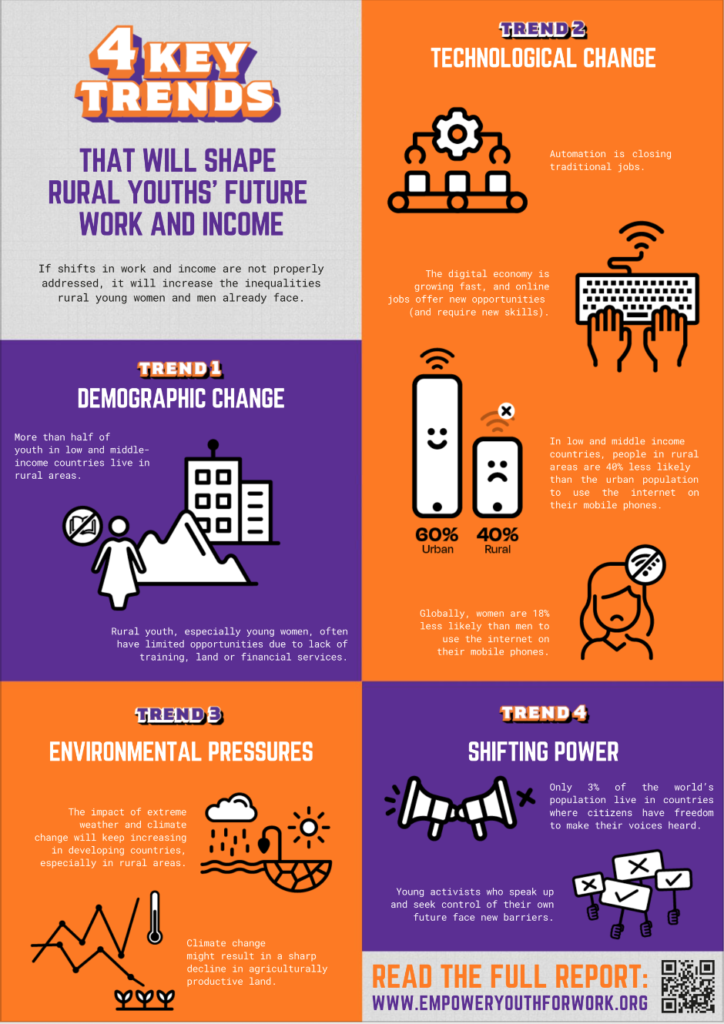The future of work - 4 megatrends
Oxfam’s Empower Youth for Work program commissioned the Institute of Development Studies (IDS) to conduct research on ‘The Future of Work’. IDS explored the expected changes in work and income-generating activities for young people in rural areas and whether existing policies anticipate the future of work. The research approaches the future of work according to four ‘megatrends’. The report shows the urgent need for policies that are fit for the future of work for rural youth, in the face of rapid changes in our technological, climate and political realities.
Empower Youth for Work (EYW) helps young people (especially young women) in climate change affected areas of rural Pakistan, Bangladesh, Indonesia and Ethiopia to access decent work.Oxfam has identified four ‘megatrends’ which are shaping the future, including rural youths’ future livelihoods.iThese trends are playing out in different ways across rural areas of the four EYW countries.
1.Technological change
In some countries, automation is threatening livelihoods and closing down traditional paths to rural development. Whilst digitization offers new opportunities for employment, women are often left behind. In Pakistan, for example, 37% of men use a smartphone compared to only 20% of women.iiPeople in rural areas often struggle with poor infrastructure and the high costs of connection.
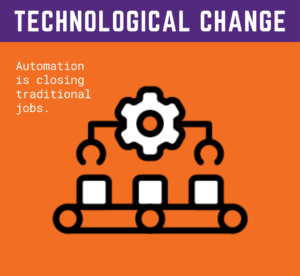
2.Demographic change
One out of every six people on the planet is aged between 15 and 24, and most of these young people –almost one billion of them –live in developing countries. In the 47 least developed countries, the number of adolescents and youth aged 15-24 is projected to grow from 207 million in 2019 to 336 million in 2050.iiiBy 2050, the number of rural youth in Africa is expected to nearly double, to 180 million, while in Asia the number is expected to drop, from340 to 230 million.iv
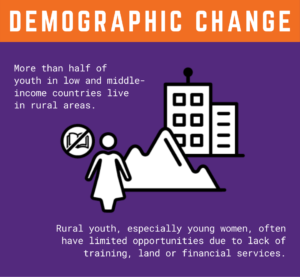
3.Environmental pressures
Rural youth typically work in sectors which are especially vulnerable to the effects of climate change, such as agriculture.vClimate change will have a major impact on the four EYW countries. Bangladesh is one of the most climate-vulnerable countries in the world and is highly susceptible to agricultural damage,viwhile Indonesians in rural areas are reliant on climate-sensitive agriculture and fisheries.viiEthiopia is overwhelmingly dependent on rain-fed agriculture and is hit by drought with increasing regularity,viiiand Pakistan is highly vulnerable to climate change, with changes in rainfall patterns, droughts and floods already evident.
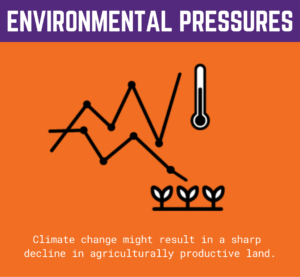
4.Shifting power
NGOs face a challenging environment, where only 3% of the world’s population now live in countries with open civic space.xThis threatens progress towards reducing inequality, since it is often marginalized and deprived groupswhom civil society seeks to empower and protect.xiFor the EYW countries, this is particularly challenging. Civic space is classed as ‘repressed’ in Ethiopia, Pakistan and Bangladesh, and ‘obstructed’ in Indonesia.xiiIn response, young people have made creative use of mobile tools to create new openings for civic space online, in which they exercise freedom of expression and association. For example, youth movements and smallholders in Ethiopia organized online to contest government land grabs for industrial agriculture, using mobile phones and social media. xiiiHowever, online civic space is also threatened by internet shutdowns, digital surveillance and coordinated disinformation campaigns.
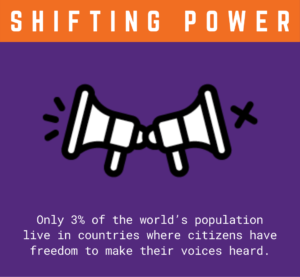
Find here: The FUTURE OF WORK –Research excerpt
And the: THE FUTURE OF WORK Findings of research commissioned by the Oxfam ‘Empower Youth for Work’ Program
